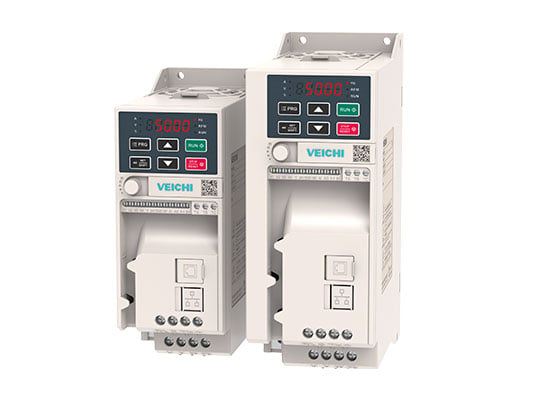Frequency converters are essential elements in compressor management, allowing the adjustment of motor speed based on the demand for air or gas. This is especially useful in industrial conditions where the demand for compressed air or gas can fluctuate.
Screw Compressors
Screw compressors are characterized by high efficiency and compact size. They use two rotating screw shafts to compress air. The application of a frequency converter in such compressors allows for:
- Regulating output based on demand.
- Reducing energy consumption by optimizing motor speed.
- Lowering noise levels through smooth start-up and shut-down.
Piston Compressors
Piston compressors operate based on a piston mechanism that compresses air in cylinders. Frequency converters can also be applied in them, providing the following advantages:
- Effective load management according to system requirements.
- Reduction of electricity costs, especially in conditions of variable demand.
- Improved strength and reliability through reduced mechanical loads on the motor.
Comparison of Frequency Converter Applications
When choosing between screw and piston compressors, it is important to consider the specifics of production:
- Screw compressors are generally better suited for continuous operation and large volumes, where a constant supply of compressed air is required.
- Piston compressors may be more efficient in conditions of irregular demand, but they may require more maintenance.
Conclusion
The application of frequency converters in compressors, regardless of type, can significantly enhance their efficiency, reducing energy consumption and increasing reliability. The choice between screw and piston compressors depends on the specific requirements and operational conditions of the system.
